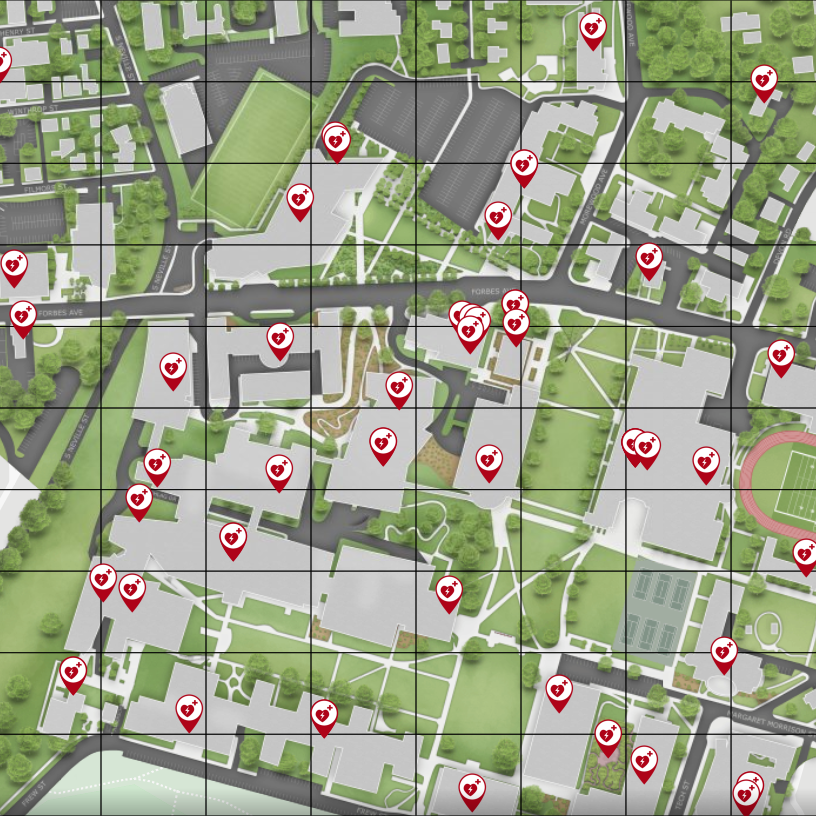
The Stop the Bleed program is a safety initiative to train community members and provide resources to assist an injured person to control bleeding (keeping the blood inside the body.)
The number 1 cause of preventable death after injury is bleeding. In case of an event that involves one or multiple victim’s bystanders will always be first on the scene.
A person who is bleeding can die from blood loss within five minutes, so quickly stopping the bleeding is critical while first responders arrive. Those nearest to someone with life threatening injuries are best positioned to provide immediate care if they are equipped with the appropriate training and resources.
Quick actions to STOP THE BLEED

Call 911
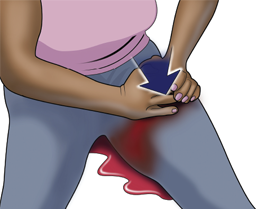
Apply Pressure with Hands
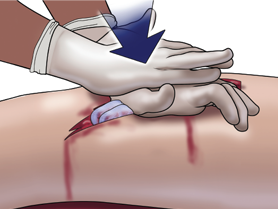
Pack Wound and Press
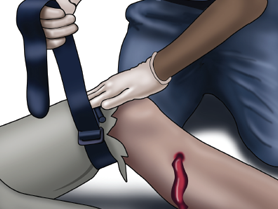
Apply Tourniquet
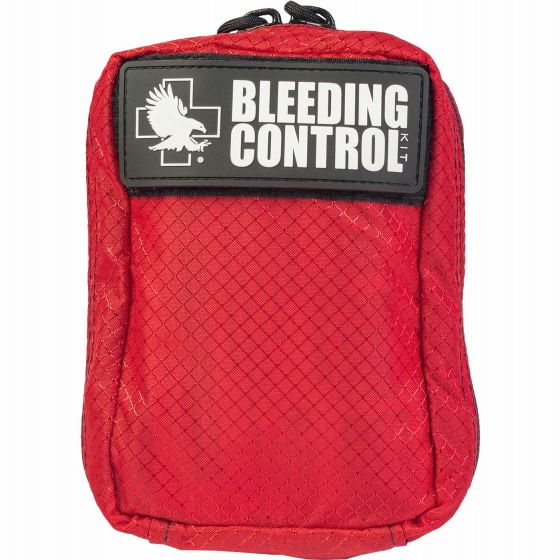
Public Access Individual Bleeding Control Kits are designed to provide essential equipment that empowers the general public to take action as immediate responders in stopping life threatening bleeding.

Public Access Individual Bleeding Control Kits are located throughout CMU’s Pittsburgh Campus.
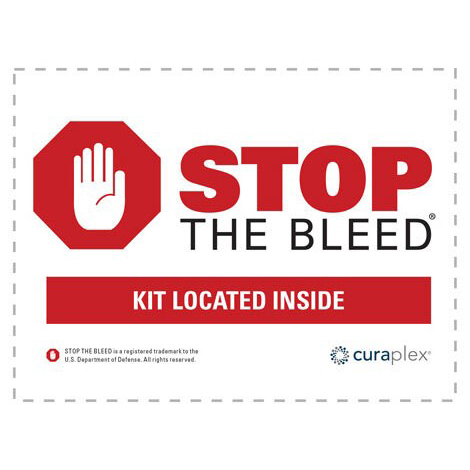
Public Access Individual Bleeding Control Kits can be found inside AED cabinets around campus. Just look for this sign!
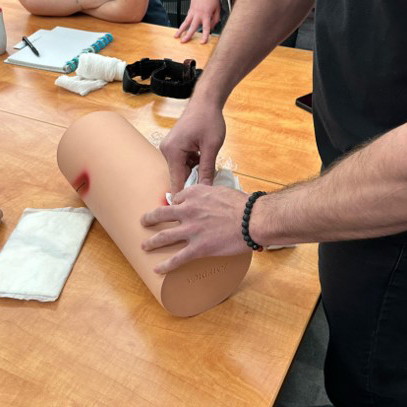
Take the STOP THE BLEED training course and become empowered to make a life or death difference when a bleeding emergency happens
Stop The Bleed Training
A bleeding injury can happen anywhere. We've all seen it happen too often—on the news or in everyday life. Life-threatening bleeding can happen in people injured in serious accidents or disasters. Instead of being a witness, you can become an immediate responder because you know how to STOP THE BLEED®.
What You'll Learn
What stops bleeding? In a STOP THE BLEED® course, you’ll learn three quick techniques to help save a life before someone bleeds out:
- How to use your hands to apply pressure to a wound
- How to pack a wound to control bleeding
- How to correctly apply a tourniquet. These three techniques will empower you to assist in an emergency and potentially save a life.
